Radiotherapy for Meningioma Treatment in Germany
Treatment prices are regulated by national law of the corresponding countries, but can also include additional hospital coefficients. In order to receive the individual cost calculation, please send us the request and medical records.
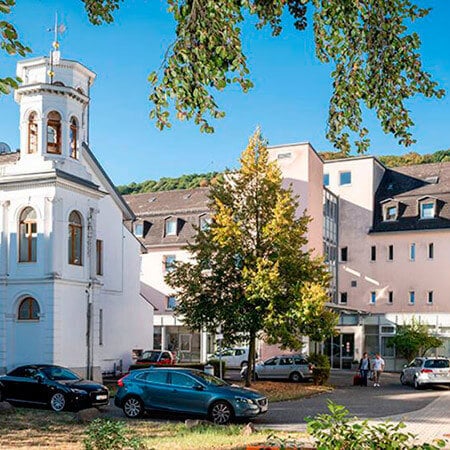
Department of Radiation Therapy and Radiation Oncology
The Department of Radiation Therapy and Radiation Oncology offers all types of modern radiation therapy for the highly effective treatment of benign and malignant tumors. The department has three linear accelerators and systems for brachytherapy, with the help of which the patients are provided with the safest, most effective and most sparing irradiation of tissues affected by oncopathology. The department's tasks also include radiation therapy planning and radiosurgery. An ultramodern technical base, exceptional professionalism and experience of the department's doctors are the cornerstone of the successful clinical practice.
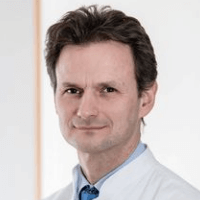




University Hospital of Ludwig Maximilian University of Munich
Department of Radiation Therapy
The Department of Radiation Therapy offers all modern services in the field of radiation therapy for cancer treatment. The medical facility uses advanced radiation therapy methods, including intensity-modulated radiation therapy (IMRT), volumetric modulated arc therapy (VMAT), image-guided radiation therapy, brain and lung stereotactic radiosurgery, total body irradiation, brachytherapy, and catheter-based administration of radioactive drugs (afterloading technique). The department is one of the first medical facilities in Germany to successfully use the innovative MR-Linac technology, which makes it possible to obtain high-precision MRI scans during radiation therapy and provide the most effective cancer treatment with optimal protection of the healthy adjacent tissues. It is noteworthy that MR-Linac technology is available only in three healthcare facilities in Germany. The department's radiation therapists cooperate closely with oncologists, chemotherapists, radiologists, and other specialists from related fields, thanks to which patients receive comprehensive treatment.
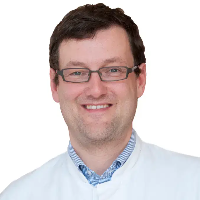






Department of Radiation Therapy
According to the Focus magazine, the Department of Radiation Therapy ranks among the top German medical facilities in the area of its specialization! The department offers all types of modern radiation therapy for cancer treatment at the highest level of university medicine. The priorities of the department's work include the treatment of tumors of the gastrointestinal tract, urogenital system in men, gynecological tumors in women, oncopathologies of the nervous system, as well as head and neck tumors. Each department's specialist strives to ensure all the patients with the most effective and at the same time customized treatment. Due attention is also paid to radiation protection.





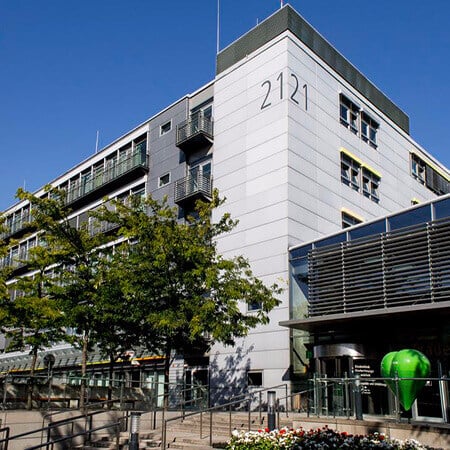
Department of Radiation Therapy, Radiation Oncology and Proton Therapy
The Department of Radiation Therapy, Radiation Oncology and Proton Therapy offers the full range of modern radiation therapy at the highest medical and technological level. Innovative proton therapy is also within the competence of the medical facility. As the largest medical facility of this kind in Eastern Saxony, the department annually admits about 2,300 cancer patients, 550 of whom are treated on an inpatient basis. In total, the department has about 110 employees, including 26 doctors, 14 physicists, 22 radiological assistants, 22 nurses and 28 employees of various profiles (in radiation biology research laboratories and other sections). The department's doctors cooperate closely with oncologists, chemotherapists and other specialists in related fields, since cancer patients usually require comprehensive treatment that combines several methods. In most cases, patients undergo radiation therapy on an outpatient basis, which eliminates the need for hospitalization. The main value of the department's medical team is the patient's health, so doctors always strive to provide qualified medical care that meets the individual needs of the patient.






Department of Adult and Pediatric Radiation Therapy
According to the Focus magazine, the Department of Adult and Pediatric Radiation Therapy ranks among the top German medical facilities specializing in radiation therapy! The department offers all types of radiation therapy for the treatment of various oncological diseases at the highest level of university medicine. The cancer patients are treated in modern rooms equipped with the state-of-art technology. In many cases, the radiation therapy is carried out on an outpatient basis. The therapeutic options are complemented with psycho-oncological and palliative care.
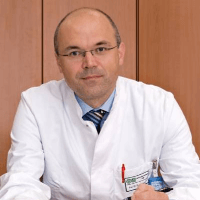




Department of Adult and Pediatric Radiation Therapy
The Department of Adult and Pediatric Radiation Therapy provides top-class conduction of all types of modern radiation therapy for the treatment of malignant and benign diseases. In most cases, irradiation is indicated to patients with cancers, but this treatment method is also effective for some benign diseases: tennis elbow, arthrosis, as well as other degenerative and inflammatory joint diseases. The department's doctors offer patients individual consultations and radiation therapy using the very latest medical technologies, which guarantee high precision of irradiation and sparing treatment. The department provides many innovative types of radiation therapy, which can effectively deal with all types of cancer. In addition, the department's doctors welcome the use of symptomatic treatment to improve the patients' quality of life and the effectiveness of irradiation. The specialists often resort to traditional Chinese medicine, acupuncture and other procedures.





Department of Adult and Pediatric Radiation Therapy, Radiation Oncology
According to the Focus magazine, the Department of Adult and Pediatric Radiation Therapy, Radiation Oncology is included in the rating of the top German departments specializing in radiation therapy! The department offers the full range of treatment of oncological diseases using ionizing radiation by means of external (teletherapy) or internal (brachytherapy) tumor radiation. The specialists of the department are doing their best to ensure the most effective cancer therapy, taking into account the very latest advances in science and medical technology, interdisciplinary cooperation and an individual approach.




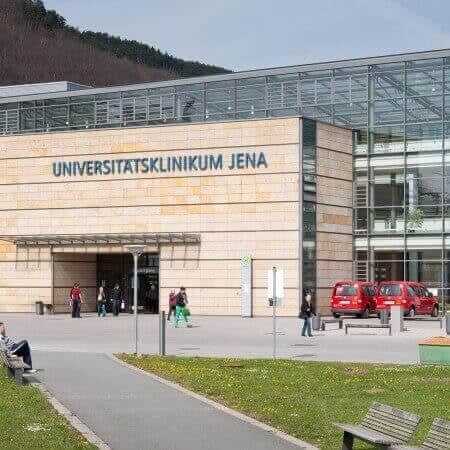
Department of Radiation Therapy and Radiation Oncology
According to the the Focus magazine, the Department of Radiation Therapy and Radiation Oncology ranks among the top German medical facilities specializing in radiation therapy! The department offers all types of modern radiation therapy for the treatment of malignant neoplasms of various localization. The availability of the cutting-edge radiation therapy technologies, the close cooperation with the specialists from all related disciplines, as well as the experience and competence of doctors provide patients with the individualized treatment and the best therapy results. The department is also part of the Jena University Cancer Center, which employs outstanding professionals who are ready to provide medical care even in the most difficult clinical cases.




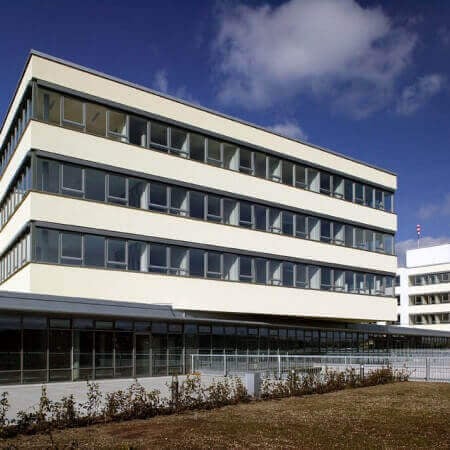
Department of Radiation Therapy
According to the Focus magazine, the Department of Radiation Therapy is included in the ranking of the top German department specializing in radiation therapy! The department offers all types of modern radiation therapy for the treatment of cancers. The competent medical team of the department annually provides its services to 2,000 patients.





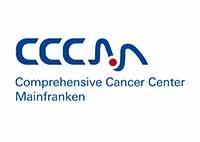

Department of Adult and Pediatric Radiation Therapy, Ion Radiotherapy and Radiation Oncology
The Department of Adult and Pediatric Radiation Therapy, Ion Radiotherapy and Radiation Oncology offers the full range of radiological diagnostics and cancer therapy. A feature of the department is the exact treatment of cancer with the help of heavy ions and proton therapy. Therapy with heavy ions and protons makes it possible to effectively destroy tumors of difficult-to-reach localization, while maintaining healthy tissues. The department belongs to the most modern medical institutions of this level in the international medical arena. It treats more than 3,500 cancer patients every year.





Department of Radiation Therapy and Radiation Oncology
According to the Focus magazine, the Department of Radiation Therapy and Radiation Oncology ranks among the top German departments specializing in radiotherapy! The department offers all types of modern radiation therapy for the treatment of malignant and benign diseases, various functional disorders. Depending on the patient's state of health and the course of the disease, radiation therapy can be carried out on an outpatient or inpatient basis, as well as in combination with other treatment methods, for example, surgery, chemotherapy, immunotherapy, etc. The high-tech equipment, exceptional professionalism of doctors and close cooperation with the specialists from related fields contribute to the provision of first-class and tailored medical care.
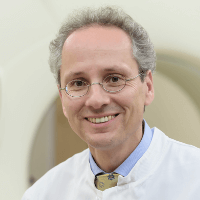





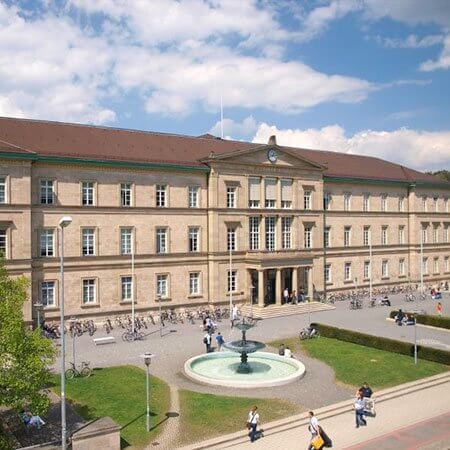
Department of Radiation Oncology
According to the Focus magazine, the Department of Radiation Oncology ranks among the top German departments specializing in radiation therapy! The department offers all advanced types of radiation therapy for the treatment of oncological diseases. Any therapeutic procedure is prescribed individually, taking into account the specific situation and course of pathology. The modern medical equipment and outstanding competence of the physicians contribute to the successful clinical practice of the department.




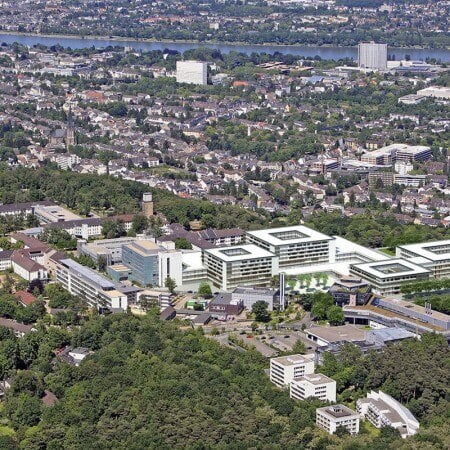
Department of Adult and Pediatric Diagnostic Radiology, Interventional Radiology, Neuroradiology and Radiation Therapy
The Department of Adult and Pediatric Diagnostic Radiology, Interventional Radiology, Neuroradiology and Radiation Therapy offers the full range of services in these medical fields. The competent doctors of the department work with the state-of-the-art systems for CT, MRI, x-ray, ultrasound, angiography, fluoroscopy and other imaging studies in adults and children. In addition, the department specializes in all modern types of radiation therapy and interventional procedures for the treatment of vascular and oncological diseases.



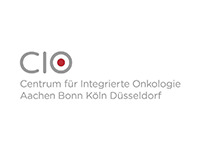


Department of Adult and Pediatric Radiation Therapy
According to the Focus magazine, the Department of Adult and Pediatric Radiation Therapy ranks among the top German departments specializing in radiation therapy! The department offers all types of modern radiation therapy for the treatment of various benign and malignant diseases. The focus is on multimodal interdisciplinary therapy of lung cancer, breast cancer, prostate cancer, sarcomas, malignant lymphomas and tumors in children. The stereotactic radiation therapy is available in the department for the targeted treatment of brain tumors. The department treats more than 1,500 inpatients and about 4,300 outpatients every year, which is the indisputable evidence of the outstanding quality of provided medical services.
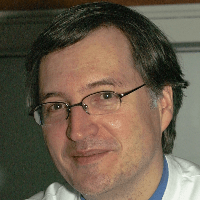




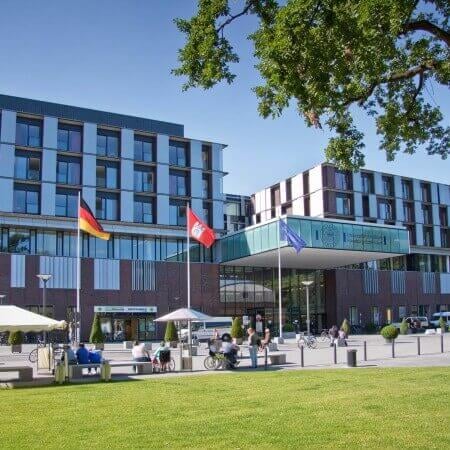
Department of Radiotherapy and Radiation Oncology
The Department of Radiotherapy and Radiation Oncology offers all modern methods of radiotherapy. It treats patients with oncological diseases, as well as benign pathologies, for example, degenerative joint changes. The department specializes in conformal radiation therapy, brachytherapy, intensity modulated radiation therapy, tomotherapy, stereotactic irradiation of malignant and benign brain neoplasms, whole-body irradiation, as well as in combined chemoradiation therapy.





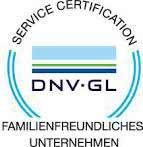
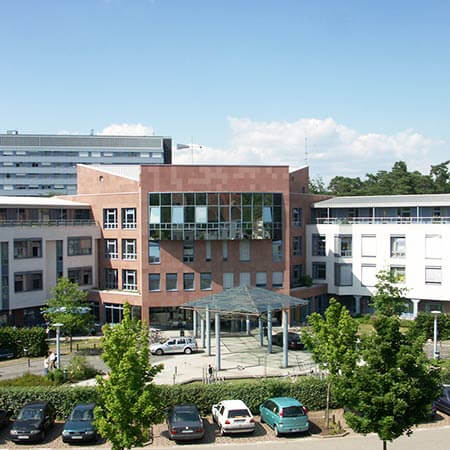
Department of Radiation Therapy
The Department of Radiation Therapy provides patients with the full range of services in this medical field. The primary focus of the department's clinical practice is the conduction of modern types of radiation therapy for treating malignant diseases. The department's specialists also successfully carry out combination treatments, such as radioimmunotherapy and chemoradiotherapy. The department is part of the Cancer Center at the University Hospital Saarland Homburg, which allows radiation therapists to cooperate closely with oncologists, surgeons, and other specialists, providing comprehensive cancer treatment. The department's team of doctors also treats patients with some benign inflammatory diseases. The department's patients most often receive outpatient medical care. There are 24 beds available to accommodate patients in the department. The pride of the department is the advanced technical equipment that allows the specialists to perform high-precision and efficient irradiation. The treatment takes place in a modern building, in the design of which great importance was attached to creating a comfortable environment for the patient. The department admits more than 1,500 patients who receive high-quality European-level treatment every year.
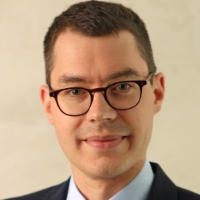


Meningioma is usually a benign brain tumor. It can be treated with the help of surgery or radiotherapy. Meningioma is usually removed surgically. If the neoplasm is benign, and the doctor is able to perform total resection of the tumor, then other treatments are not required. In some patients, the disease needs to be additionally treated with radiotherapy in order to avoid a recurrence.
Radiation therapy after surgery
Radiation therapy is most often used as an addition to the surgery. It stops the growth of the tumor and reduces its size. In addition, radiation therapy reduces the risk of continued meningioma growth and neoplasm recurrence. It is necessary in the following cases:
- Inability to perform the radical surgery for tumor removal – if the doctor did not remove and coagulate the matrix (part of the dura mater from which the meningioma grows)
- Intermediate or malignant meningiomas (occur rarely)
The irradiation is carried out after healing of the soft tissues of the operating wound. That is why the course of radiotherapy usually stars no earlier than 4 weeks after the tumor has been removed surgically.
Radiation therapy as an alternative to surgery
Meningiomas are tumors with distinct boundaries that do not invade surrounding healthy tissues. As a rule, they are sensitive to radiotherapy. Therefore, radiation is sometimes used as an alternative to surgery.
Radiosurgical techniques are used for destruction of tumors during 1 session. They are indicated in the following cases:
- Location of the tumor is inconvenient for surgical removal
- Tumor has small size and / or do not cause severe symptoms
- There are contraindications for the operation
- The patient refuses surgery
What is radiosurgery?
Radiosurgery is a type of radiotherapy, which is performed in one session. It is very precise and powerful, so it allows the doctor to destroy tumors, reduce their size, or at least stop their growth.
The following devices are most often used for radiosurgery:
- «Gamma Knife» (Electa, Sweden)
- «CyberKnife» (Accuray, USA)
- «Novalis» (BrainLab, Germany)
- «Trilogy» (Varian Medical System, USA)
For the first time, radiosurgical treatment was carried out by the Swedish neurosurgeon Lars Leksell. It was used for destruction of foci of pathological activity in the brain, but not in patients with tumors. After the widespread implementation of CT and MRI in the clinical practice, the era of the use of radiosurgery in neuro-oncology began. The technique is most often used for the treatment of metastatic, hard-to-reach or multiple neoplasms. The first GammaKnife system was used in Sweden in 1968. It contained 179 sources of radiation. Only 20 years later mass production was launched, and similar devices appeared in many countries of the world.
GammaKnife requires the use of stereotaxic frame. It is fixed to the patient's skull with screws under the local anesthesia. The stereotaxic frame allows for the precise direction of the radiation beams. Radiation therapy is performed using radioactive substances as the sources of radiation.
The first linear accelerators appeared as early as 1994. By the beginning of the twenty-first century, they became the basis of radiotherapy for malignant tumors. Linear accelerators do not use radioactive substances.
The next generation of linear accelerators is the CyberKnife Robotic Radiosurgery System. It was developed in the USA under the direction of J. Adler, a student of Lars Leksell. The CyberKnife system combines all the technological advances in robotics, computer navigation and radiotherapy. It allows the doctors to irradiate meningioma without using the stereotactic frame which makes the procedure more comfortable for the patient.
How is radiotherapy carried out?
German hospitals use both Gamma Knife and linear accelerators for destruction of brain tumors, including the CyberKnife system.
The treatment with the Gamma Knife requires fixation of the stereotaxic frame. Most systems contain about 200 radiation sources. They have a built-in automatic positioning system. The new Gamma Knife devices have only 30 radiation sources, but they can move, directing beams into the meningioma site from an infinite number of angles. The function of selective opening and closing of the collimator holes allows the doctors to irradiate even tumors of complex configuration quickly and automatically.
Radiation therapy with Gamma Knife involves 4 stages:
- Placement of the frame
- Localization of the target
- Treatment planning
- Irradiation itself
The location of meningioma is determined by CT scan or MRI.
Many hospitals in Germany use linear accelerators for radiotherapy, including the CyberKnife systems. The patient does not need to be prepared for the procedure or fixed. The imaging system works in real time. CyberKnife detects the slightest changes in body position and redirects the beams in a given direction.
Advantages and disadvantages of radiosurgery
The advantages of radiotherapy as compared to meningioma surgery are as follows:
- Bloodless, non-invasive treatment method
- Absence of pain syndrome
- Minimal risk of complications development
- No need for long hospital stay and postoperative recovery
- No need to shave off the hair on the head
- No scars
- Opportunity to undergo treatment without leaving the everyday life, without a break in work
However, such treatment also has certain disadvantages. Despite the name of the treatment method, radiosurgery does not physically remove the tumor. After the therapy completion, meningioma regresses gradually over time. As a rule, it only decreases in size, and does not disappear completely. This happens only in a few months after irradiation. Sometimes meningioma does not regress at all, but only stops growing.
In general, radiotherapy is less effective than the conventional surgery. As a radical treatment method, it is not suitable for patients with aggressive, rapidly growing tumors, with severe neurological symptoms, progressive cerebral edema and liquor hypertension. In contrast to radiotherapy, the surgical intervention eliminates the tumor immediately, so it leads to rapid regression of symptoms in the early postoperative period.
Side effects and complications
Although radiotherapy is safer than surgery, it can sometimes lead to complications and often causes side effects. Their likelihood depends on the number of factors, such as:
- Size of the tumor and, accordingly, the volume of the irradiation area
- Equipment (some methods of radiotherapy are more precise and safer)
- Number of fractions (irradiation in 1 session is more convenient, but more often leads to complications, therefore, it is used only for the treatment of small meningiomas)
During the period of receiving radiation sessions, a person may experience nausea, headache and weakness. Several months after, such complications as decreased cognitive functions, mental disorders, cerebral radiation necrosis, neurological symptoms, occur in a small percentage of patients. Follow-up examinations need to be carried out in order to detect and treat the complications timely.
Proton therapy
Some German hospitals use proton therapy, the most accurate and safest treatment for meningioma treatment. The main fields of application are:
- Tumors of the skull base, cavernous sinus or optic chiasm
- Meningiomas in children
Proton therapy has no efficacy advantages in the treatment of meningioma as compared to the conventional photon irradiation. Its main advantage is safety. Proton therapy can irradiate tumors of any location without damaging the adjacent cranial nerves. It is 5 times less likely to cause secondary brain tumors as compared to intensity-modulated radiotherapy. Side effects and complications are also less common after proton therapy.
There is no doubt that proton irradiation is better than photon irradiation, but due to high price, the method has not become widespread yet. Another disadvantage is insufficient availability of proton therapy. It is available only in a small number of specialized hospitals. Therefore, the patients sometimes have to wait a long time for their turn to undergo treatment.
Why is it better to undergo treatment in German hospitals?
Many patients from countries with low levels of medicine prefer to undergo treatment of meningioma in Germany. You can use Booking Health service to reduce treatment costs and choose the best hospital.
In German hospitals, you can really count on the best results. Here are some reasons why it is better to go to Germany for a treatment:
- High-precision diagnosis – allows the doctor to determine if you need radiotherapy and which radiation regimen is more suitable for achieving the best results and not damaging important anatomical structures
- State-of-the-art equipment – new radiosurgical systems and linear accelerators are used in Germany for irradiation of meningioma with minimal risk of side effects and complications
- Availability of innovative radiotherapy methods – CyberKnife systems are used in Germany, as well as proton therapy, which is the safest option for irradiation of brain tumors
In German hospitals, prices for medical services may be higher than in your native country, but the ratio of the cost of treatment to its quality is one of the best in the world.
Treatment in Germany with Booking Health
You can find the information about German hospitals, doctors and prices on the Booking Health website. You can compare the cost of treatment in different hospitals and book a medical program at the best price. Booking Health will arrange medical treatment abroad for you. We provide the following services and benefits:
- Selection of the hospital which specializes in the treatment of meningioma and uses the latest types of radiation therapy
- Direct communication with the attending physician
- Reduced waiting period for a treatment and appointment on the convenient date
- Reduced cost of treatment abroad; costs are reduced due to the absence of additional coefficients for foreign patients
- Relevant information about your expenses, the cost of treatment, funds remaining in your account
- Elaboration of the treatment program for meningioma in Germany without repeating previously performed diagnostic tests
- Communication with the hospital upon the medical program completion
- Buying and forwarding medicines
- Organization of additional diagnosis making procedures or treatment in Germany
The specialists of Booking Health provide high-quality service for you in order to be treated well. We will book a hotel and airline tickets for you, organize a transfer from the airport to the hospital and back.